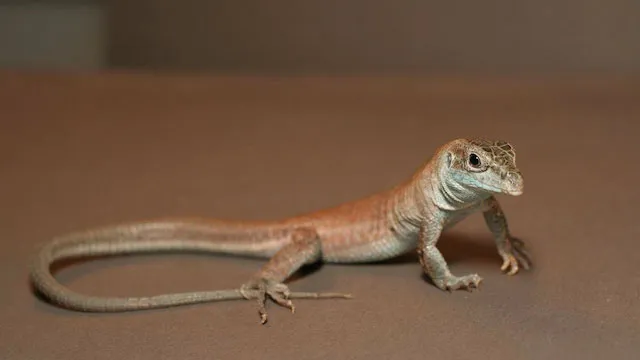Parthenogenesis, which is the act by which an animal reproduces by cloning itself, has been observed in over 80 species of fish, amphibians, and reptiles. But this process had never actually been observed before since it probably happened 100,000 years ago, causing a historical mutation that was too far in the past to trace. Now, scientists have figured out how to create a unisexual species of lizard by mating two different species. What does this mean for us? It means that the all-female population of Jurassic Park could have laid their own eggs rather than changed genders. If this happened in real life. Which it didn’t. But still.
Among the most common lizards exhibiting unisexuality is the whiptail lizard (Aspidoscelis) found in southwestern North America, which features 12 different species, 7 of which are unisexual.
Genetic studies suggest their unisexuality emerged from historical unions of two sexually-reproducing lizards belonging to closely-related species, the hybrid offspring of which possessed mutations needed for parthenogenesis.
In two of the unisexual whiptails, that seems to have been enough; they immediately went all-female. In the other five, it took another round of traditional sexual mating.
However, when being observed in nature, the unisexual lizards were proved sterile, and all experiments to replicate the process failed. Until 1967, when two species of whiptails — A. exsanguis (female) and A. inornata (male) — yielded six offspring, four of whom were females who reproduced without male assistance. (Those offspring have also reproduced and are on their fourth generation of clones.) Below are lizards that were observed.
On the left are two parents of opposite sexes and their female offspring. On the right are the offspring’s cloned offspring — second, third, and fourth generations.
Scientists have yet to name this new all-lady mutant species of whiptail lizards, but it is a huge breakthrough for those seeking answers on how some species survive and how some don’t. What this really proves, though, is what Ian Malcom said so eloquently: “Life, uh, finds a way.”
And hey, it’s good news if Y the Last Man ever happens to us.









Published: May 5, 2011 04:13 pm